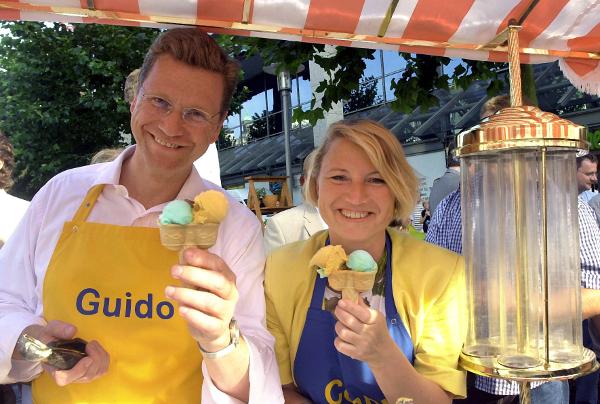Source

Source: picture-alliance / ZB (c) ZB – Fotoreport
After running a campaign that was entirely tailored to its top candidate, Jürgen Möllemann, the FDP captured 9.8 percent of the vote in the elections to North Rhine-Westphalian state parliament [Landtag] on May 14, 2000. Speaking at the FDP national convention in 2001, Guido Westerwelle (left), Möllemann’s designated successor as national chairman, declared that the party’s goal in the upcoming Bundestag election was 18 percent of the vote. During the election campaign, Westerwelle traveled through Germany in a yellow bus dubbed the “Guido-mobile.” But the FDP’s style of campaigning led critics to dismiss it as a frivolous, and Möllemann’s criticism of Israel, which left him open to accusations of antisemitism, also proved counterproductive. Last but not least, the 2002 Bundestag election campaign was dominated by the Elbe floods in the eastern part of Germany and the Iraq crisis, which gave the FDP little opportunity to set itself apart from other parties. Although the party increased its share of votes from 6.2 percent in the 1998 Bundestag election to 7.4 percent in 2002, it remained far removed from its goal of becoming the country’s third-largest party. The photo shows FDP national chairman Guido Westerwelle (1961-2016) and FDP general secretary Cornelia Pieper giving ice cream cones to passers-by on the campaign trail in Magdeburg (Saxony-Anhalt).

Source: picture-alliance / ZB (c) ZB – Fotoreport